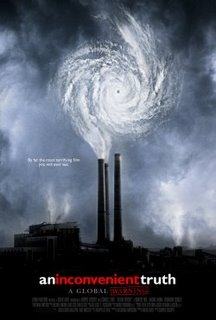The power of ideas

I have recently read a couple of books and seen one movie that show how powerful ideas can be.
The first is the book Freakonomics by Steven Levitt. Levitt is an economist that asks questions that most people would never think of. For example, why do most crack dealers live with their mothers? In doing so he reveals that what the commonly accepted explanation for things is not necessarily the best one. While Levitt's theories are firmly grounded in mainstream economics theory I like his way of thinking.
Levitt cites The Tipping Point by Malcom Gladwell a number of times and it has obviously influenced his work. It was a book I first heard about several years ago. The sub-title of the book is "How little things can make a big difference".
Like Levitt, Gladwell thinks outside the box. His ideas are applicable to a number of fields, most notably marketing, management, education and activism.
One of the important ideas in The Tipping Point is the idea of "connectors". These are people that have a large number of contacts and a disproportionate impact in the spreading of information. Most people have a small circle of friends and often those friends are also friends with each other. Connectors, on the other hand, have contact with a wide range of people. Their contacts are not limited to certain location or people with certain interests.
Obviously these people not only talk to more people, but the people they talk to a wider range of people. This is a key in making ideas spread.
Al Gore would easily qualify as a connector. A long career in politics including eight years as Vice-President of the United States would have bought him into contact with innumerable people around the world. And when he talks people listen to what he has to say.
He has made a documentary called An Inconvenient Truth about climate change. Interestingly Gore had a professor while he was at university in the 1960s who was one of the first people to measure CO2 levels in the atmosphere. Gore has known about and understood the problem for a long time.
He explains it all in a very clear manner in the film. Anyone who doesn't understand climate change or quite believe that its real should be convinced by the end of this movie. If they remain unconvinced then surely it would be because of political ideologies that remain unchangeable.
Action on climate change has been delayed for too long because those with vested interests in the status quo have been very successful in sowing seeds of doubt about whether climate change is really happening. Hopefully this film will act as a tipping point and convince enough people that it is real and something needs to be done now!
I highly recommend this film and also The Tipping Point.
Technorati tags: Al Gore | climate change | global warming | An Inconvenient Truth | freakonomics | The Tipping Point | ideas
Labels: books, climate change, movies



1 Comments:
I enjoyed Freakonomics quite a bit myself. It was an interesting book. I particularly enjoyed the analysis of names and the investigations about Sumo tournament fixing.
Post a Comment
<< Home